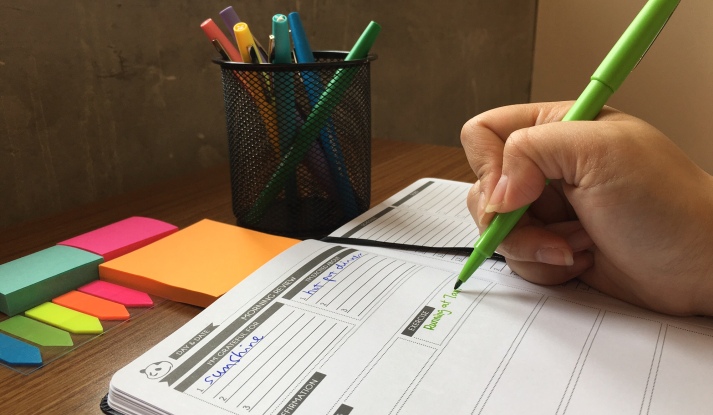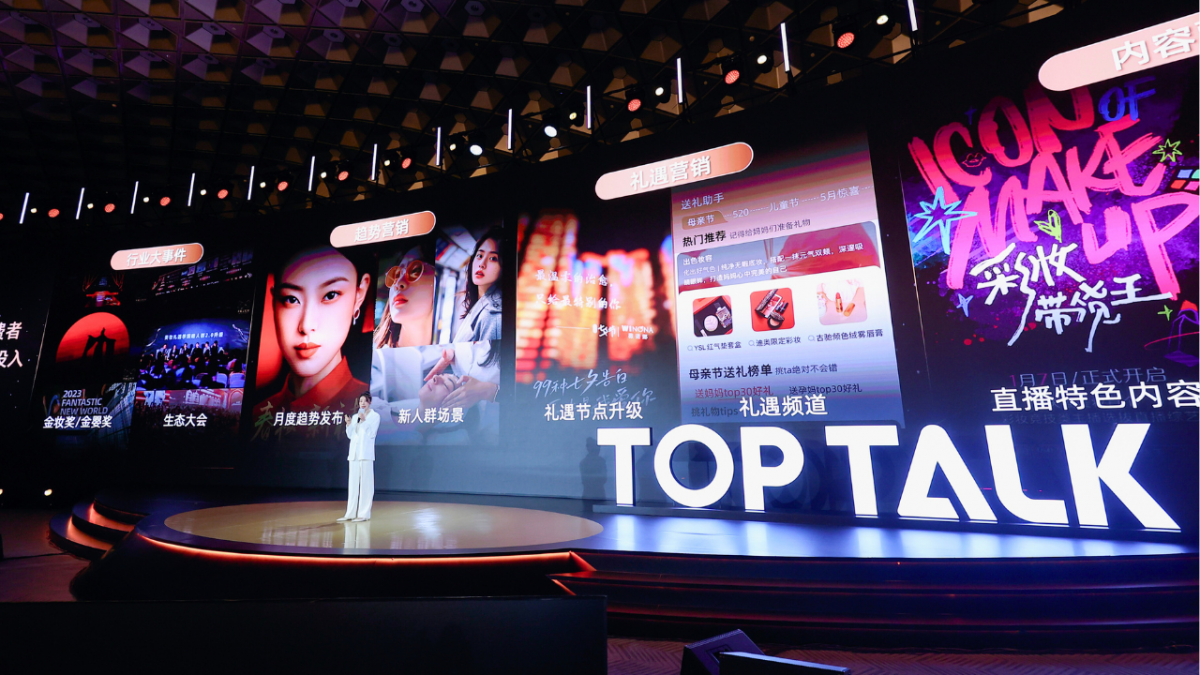
No one can plan for unexpected illnesses, injuries and other setbacks. But after experiencing his own series of black swans while he was in his 20s, entrepreneur Michael Leip realized you can plan how to bounce back from life’s beanballs—and he’s created a personal planner to help people do just that.
While most personal planners are primarily time management tools, Leip’s Panda Planner may be the only organizer that aims at psychological management as well. Based on principles drawn from positive psychology and the latest research in what makes people happy, the Panda Planner builds into users’ daily routines practices such as gratefulness, self-motivation and even physical exercise to cultivate a positive and productive mindset. “It’s a really unique system,” Leip explains. “It accommodates everyone from business professionals to stay-at-home parents. It helps develop a ‘happiness habit’, but it’s also very practical. I don’t know of any other planner that has that kind of appeal.”
Related Content
U.S. Phone-Case Maker’s Tmall Strategy in China Otterly Successful (March 23, 2017)
For Abingdon Watches, Success was Sourced at Alibaba (March 22, 2017)
Core Values: An American Apple Grower Sells to China (Sept. 20, 2016)
For awhile, the happiness habit was difficult for Leip to acquire. The planner is the end result of a series of debilitating health problems Leip endured starting when he was 25, when he contracted Lyme Disease while training for a triathlon. “I went from being able to do an Olympics-distance triathlon to not being able to walk up a flight of stairs,” he says. Not long after, he suffered the first of two concussions while snowboarding; then, in 2014, he slipped and hit his head on a granite tabletop, putting him out of action for three months.
The Natick, Mass., serial entrepreneur, who had run his own real estate investment company, been an internet marketing consultant and launched some three dozen mobile-app games, found he was having trouble just getting out of bed in the morning. “I couldn’t think clearly. The combination of Lyme Disease and the head injuries put me in a place of severe anxiety and depression. Some days I didn’t know if I was going to be able to work eight hours or 90 minutes. I was in debt, it was really scary for a good many years.”
Leip went looking for a way “to take back control of my life.” He’d previously designed a mobile game to increase creativity, and began delving into the science of motivation and positive psychology “just so I could actually work.” After kicking around different ideas and creating “this really ugly Excel document,” he combined a personal journal with a morning routine that included listing three things to be grateful for, three things to be excited about, and a self-affirmation, among other tasks.
This was the first messy version of what became the Panda Planner. After discovering that following his self-developed regimen pulled him out of his doldrums, “I thought other people might like this too,” Leip says. Panda Planner waslaunched in 2015to provide motivation, inspiration and a system that people can follow to live happier and more fulfilling lives. The following year, Leip landed nearly $27,000 in Kickstarter funding to create a larger version called the Panda Planner Pro.
Since setting up his company, Leip, 32, has sold more than 70,000 Panda Planners, which today comes in four versions.Hesells them through his own website and on Amazon, where it’s currently rated as the No. 1 best seller in personal organizers. “I have a number of clients who have bought hundreds of them for their entire sales team,” Leip says. “There have also been some sales to the military, a bunch of customers I never expected.”
You might say Leip has Lyme Disease to thank for his success. But he also credits Alibaba.com, Alibaba Group’s international wholesale sourcing website. When he first started looking for manufacturers in the U.S., he realized labor costs were too high to viably produce the Panda Planner. Through Alibaba.com, which hosts thousands of independent manufacturers and suppliers, he found scores of Chinese companies willing to make his product according to his specifications at prices that left room for a profit margin.
“I think what’s so amazing about Alibaba is the way it has democratized the market,” Leip says. “It has lowered barriers to entry so anyone can get into business very quickly. Without Alibaba it would have been impossible to find enough suppliers to consider. Alibaba shortened that process enormously. Locating suppliers also gave me a chance to learn about binding styles, cover materials and other aspects of production.”
Working with China hasn’t been without challenges. He’s switched suppliers several times in search of a manufacturer that can deliver on time and with consistent quality. “The product now is exponentially better than when I first started, but I’m still looking for a supplier who can produce even higher quality products for our customers.”
Still, “it would be impossible to have a profitable company without Alibaba,” Leip says. He’s just opened his first office and is hiring two full-time employees with the expectation that he will expand sales threefold in 2017. Panda Planner has just started shipping to Canada, and Leip is developing a mobile app that will function as an on-the-go companion to the planner—the first product in what Leip hopes will be an expanded product line.
“One of the goals of the company is to create research-based tools to increase well being.” He says. “We want to create tools that leverage academic studies about productivity, creativity and happiness so people can apply those principles to their everyday lives.”
As for the Panda Planner, Leip continues to refine the product based on customer feedback and new strategies coming out of the academic world. “I’ve been taking an iterative approach to product development,” he said. Since launching, he’s made more than half a dozen changes to the design, and is always tweaking things until he’s satisfied. “I’m not quite there yet,” Leip says, “but feel like I am pretty close.”
On June 20-21, Alibaba Group will host a conference in Detroit called Gateway ’17 to help U.S.small businesseslearn about the opportunities available to them selling to or sourcing from the China market and network with like-minded entrepreneurs.Visit www.gateway17.com for more information, brand success stories or to register and take your first steps toward selling to China.




